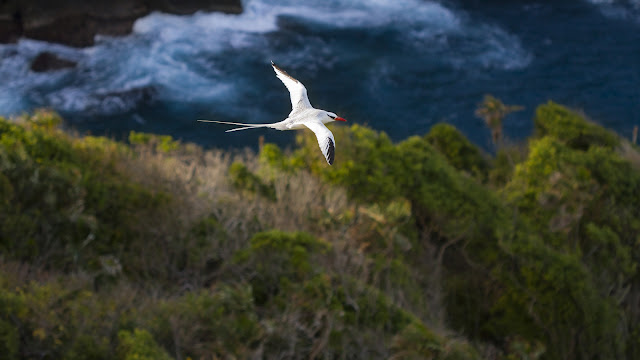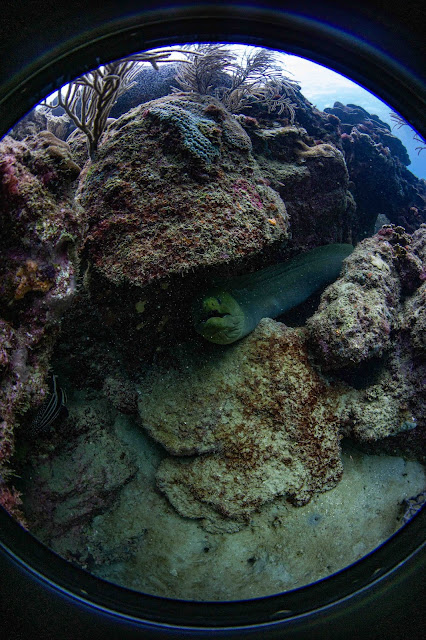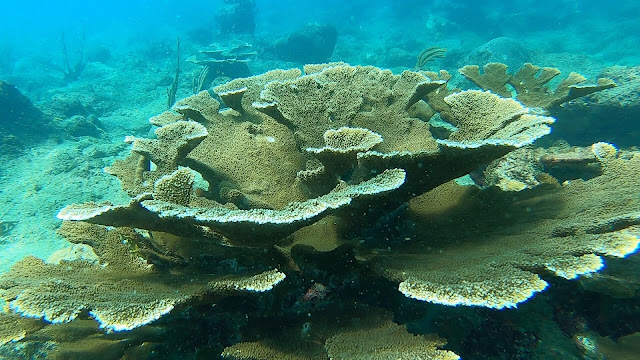No Unwanted Gifts!
We’re just a month away from one of the most widely celebrated seasons in the year. Coral reef ecologist Anjani Ganase suggests some ways to a more conscious observance.
If 2020 has taught us anything, it is that we urgently need to change our relationship with nature. The over exploitation of natural resources has exposed us (and a significant number of animal and plant species) to debilitating diseases, devastating wildfires, deadlier hurricanes and mass die off of coral reefs and decimation of fisheries.
Gifts Galore! This typical sight on Christmas Day can be replaced with eco-friendly gift wrapping and thoughtful gestures. Photo by Pat Ganase
There is no part of the world that hasn’t been littered by plastic waste – from the highest peak of Mt Everest to the greatest depths of the Marianna Trench. Unfortunately, there still is a notion that the solution to the problem does not reside in our hands, and we continually have to be reminded by the next generation who will live through most of the impacts of climate change, such as Maria Marshall from Barbados, the youngest filmmaker for her video Little Thoughts on Big Matters. She lets us know that there are simple actions that we all can do that will add up to make a big difference. All it takes is consistent effort.
In one month, it’ll be Christmas, a time for gifting and lots of holiday food, drinks and treats. However, Christmas this year is guaranteed to include a lot reflecting. For all the merry making and celebrating, Christmas is the most wasteful holiday celebrated. In the USA alone over two billion Christmas cards are sold every year, along with enough wrapping paper to cover most of Tobago. The amount of plastic waste associated with gift wrapping and packaging amounts to over 100,000 tonnes. Furthermore, the invisible impact includes the carbon footprint associated with those travelling for Christmas. Let us not forget the Christmas lights, very symbolic of the season; which have a high energy cost and impact, and may also be detrimental to wildlife.
In the UK about four billion pounds sterling was spent on unwanted gifts, while in Australia, $400 million Australian dollars was spent on 10 million unwanted gifts in 2018. Most unwanted gifts will be wasted or end up in a landfill.
Many of us see an uncertain future in the coming years while there are the usual pressures for traditional celebrations of the holidays of gift giving and grand gestures. Many countries will also be in lock down and gatherings limited to the household. Without the high seasonal travel – in fact, no travel at all - we are helping to reduce levels of carbon emissions surrounding the season, but what if we can use the opportunity to permanently shift traditions and do things differently, toward small changes that are more environmentally friendly and even more economical. Here are a few ideas to consider:
GIFTING Let us forego the paper and plastic waste from packaging: we can save on gift wrapping, paper, bags, bows and ribbon and cut down a tremendous amount of waste annually. Consider reusing packaging and the paper from other holidays. Create your own wrapping from old magazines or a re-usable bag. Let us consider the gifts themselves. A bigger gesture would be to give experiences as gifts rather than items. Experiences can include yoga sessions, cooking lessons with a village “sweet hand” , horseback rides or a massage; an outing to a nature reserve, the botanical gardens, the plant nursery. Let’s challenge ourselves to give meaningfully: flowers, a plant, a letter “ten ways you make my life better.”
Never underestimate a gift voucher, which reduces the chance of an unwanted gift significantly. Better yet, buy vouchers from local makers: you’ll be helping an entrepreneur stay in business and giving the choice of a future gift. If you choose electronic toys or gifts, think about the battery consumption and the ease of recycling the product. Does the company allow items to be collected at the end of its life span for repurposing?
OH CHRISTMAS TREE: The tradition of the Christmas tree in the tropics is different to that of the US and UK where real pines are cut and selected for the Christmas tree. Most of us in T&T use the plastic representative of the real thing. The waste and carbon footprint in the production of the plastic tree is much higher compared with a live tree. An alternative is to buy a local tropical pine and keep it in the pot to be used for multiple years. Choose a creative alternative for decorating and mounting lights: use an interesting piece of driftwood; outline your Christmas tree on the wall with lights; decorate an interesting potted plant or group of plants.
BOXING AND RE-GIFTING Revive Boxing Day as an additional day of giving. Traditionally, Boxing day was the time to share with the less fortunate. Let us bring back this tradition. Gather used computers and tablets to donate to schools and organizations. The disposal of electronics and their batteries are especially difficult: seek out a company that will dispose of electronics properly. Align the reduce, reuse and recycle into the Christmas activities.
BRING OUT DE HAM In many places around the world, food wastage around Christmas can be exorbitant. Limited Christmas gatherings this year will certainly be centered on home cooked meals. Even if you have special meals catered, go for a more ecofriendly experience by avoiding the use of paper or plastic plates and cutlery. Pull out your fancy cutlery, it’s a special occasion. Beef and lamb and even turkey will have a higher carbon footprint especially if they are imported. Choose local pork or chicken; and as far as possible, all local ground provisions and vegetables. Seek out the community black cake makers, pastelle and ponche a crema blenders.
CONSCIOUS CHRISTMAS Of course, we want to support the makers and entrepreneurs, the shops that depend on our purchases to keep employees in jobs. But let us remember the spirit and meaning of Christmas: and create a season of goodwill and good memories with what we have and can share, rather than what we want.
References
https://www.businessleader.co.uk/the-dark-environmental-impacts-of-our-christmas-season/57161/
https://theconversation.com/how-to-make-holiday-gift-giving-eco-friendly-and-more-meaningful-128387



